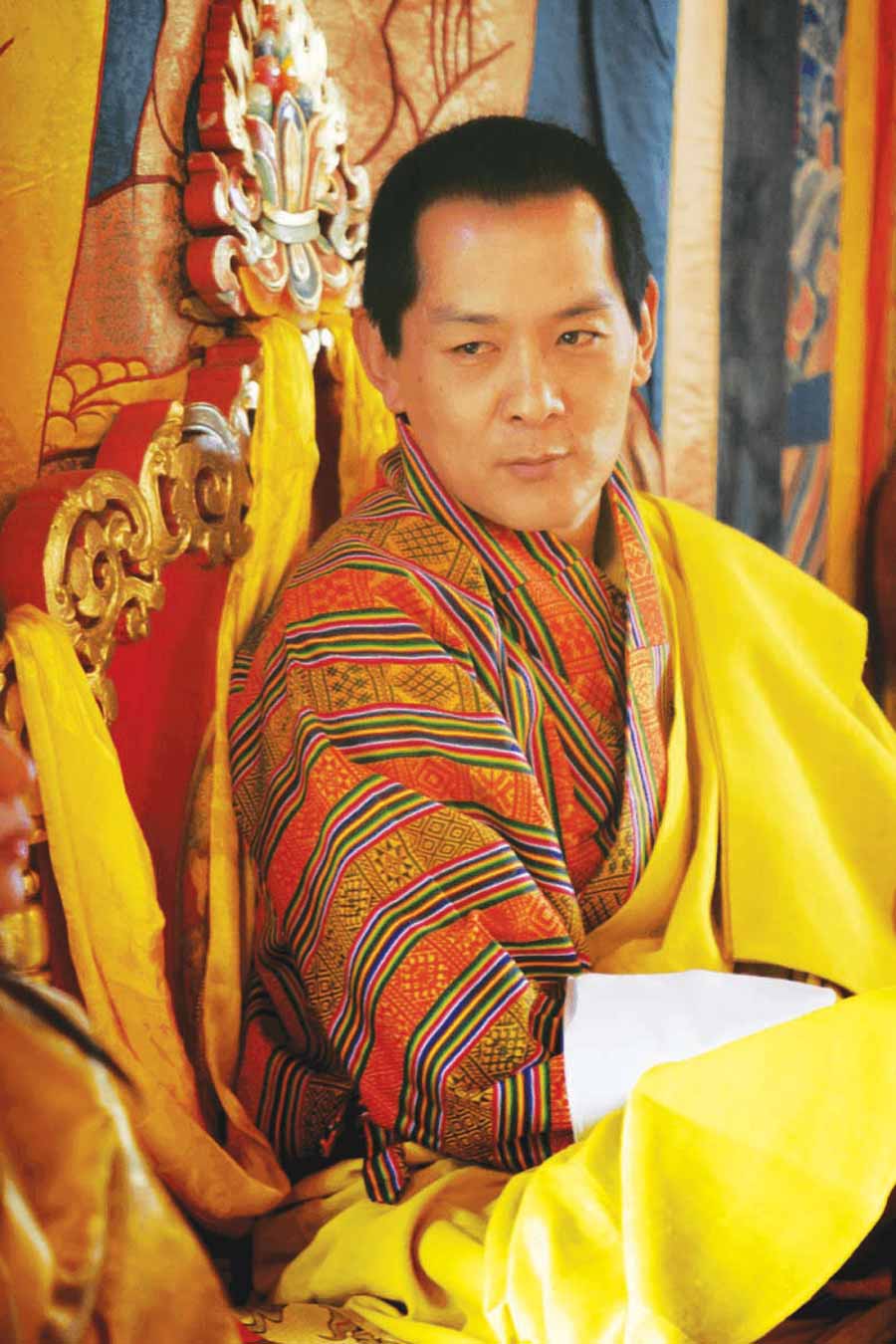The views expressed in our content reflect individual perspectives and do not represent the authoritative views of the Baha'i Faith.
Would you like to answer the question researchers use to measure the world’s happiness? Here you go:
Please imagine a ladder, with steps numbered from 0 at the bottom to 10 at the top. The top of the ladder represents the best possible life for you and the bottom of the ladder represents the worst possible life for you. On which step of the ladder would you say you personally feel you stand at this time?
What rung of that ladder would you say you’re standing on?
This revealing question, called the Cantril ladder or the “self-anchoring scale,” was initially invented by Hadley Cantril, an American psychologist and pioneer of public opinion research. Cantril believed, along with early pollsters George Gallup and Elmo Roper, that we could make great strides in governmental policy by utilizing public opinion research to measure human progress.
Today, the Cantril ladder underpins the World Happiness Report, a landmark survey that began to assess the state of global happiness in 2010.
In the past, traditional measures of people’s well-being relied on statistical analysis of material gains: by comparing a nation’s gross domestic product (GDP) with other countries; by looking at material success as ranked by individual income; or by attempting to determine relative poverty and wealth.
But it turns out that these purely monetary measurements don’t really accurately reflect people’s sense of well-being. Instead, simply asking them to rate their relative level of happiness using the Cantril ladder gives us a much better sense of how people feel life is going for them overall.
You may have seen or read the recent news coverage of the World Happiness Report—it received wide global attention when it was released on March 20, the U.N.’s World Happiness Day. Most of the news media outlets that reported on the study, though, only focused on one part of the report, its ranking of the relative happiness levels of 156 of the planet’s countries. Predictably, the world’s happiest countries—7 out of the top 10—turned out to be relatively well-off, peaceful and egalitarian Scandinavian democracies like Denmark, Norway, Sweden, Iceland and Finland. (The top ten also included Canada, New Zealand and Australia) By contrast, the bottom ten countries—including Afghanistan, Burundi, Liberia, Syria and Togo—all had endemic inequality and deep poverty, suffered from recent or current armed conflict, and evinced several other significant social and political problems.
Those comparative national rankings drove the bulk of the news coverage of the World Happiness Report, but the media mostly missed its other, more revealing results. In this short series of essays, we’ll look at those important findings, see if we can evaluate them in light of their spiritual ramifications, and explore what the Baha’i teachings have to say about personal and global happiness—and how we can achieve it.
But first, a little background history: the United Nations published the first World Happiness Report in April 2012, in support of the initial High Level Meeting at the United Nations on Happiness and Well-being, chaired by the Prime Minister of Bhutan.
The nation of Bhutan, the first country in the world to recognize and institute the happiness of its people as a major policy goal, began to establish a Gross National Happiness (GNH) quotient more than four decades ago. Initially suggested in 1972 by Bhutan’s fourth Dragon King, Jigme Singye Wangchuck, the GNH measure intended to create an economy and a governmental structure based on Buddhist spiritual values, rather than the typical Western material development measures exemplified by GDP statistics and consumption figures:
…for my nation today GNH is the bridge between the fundamental values of kindness, equality and humanity and the necessary pursuit of economic growth. – Bhutan’s King Wangchuck

Jigme Singye Wangchuck
Even in Bhutan, though, the GNH idea initially struggled to get off the ground, primarily because most measures of happiness seem so subjective and not so easily quantifiable. Some economists and policymakers initially scoffed, but in Bhutan today, GNH has become a major part of the country’s planning. It gets measured with four major criteria: sustainable development, conservation of the natural environment, preservation and promotion of cultural values, and the establishment of good governance. That vision now serves as the framework for Bhutan’s forward-looking five-year planning process, guiding the country’s economic progress and development in concert with its spiritual values.
After Bhutan’s creation of this new happiness measure, other countries began to adopt it, too:
So far, four national governments—Bhutan, Ecuador, United Arab Emirates and Venezuela— have appointed ministers of happiness responsible for coordinating their national efforts. There are many more sub-national governments— from large states like Jalisco in Mexico to many cities and communities around the world—that are now committed to designing policies enabling people to live happier lives. – World Happiness Report 2016.
This international trend reflects fundamental Baha’i values, as well. The Baha’i teachings, in their call for oneness and global unity, have emphasized “the happiness of nations” since their inception in the mid-1800s. In fact, Baha’u’llah, the prophet and founder of the Baha’i Faith, admonished the world’s leaders to turn their attention to “that which would conduce to the happiness of mankind:”
We desire but the good of the world and the happiness of the nations…. That all nations should become one in faith and all men as brothers; that the bonds of affection and unity between the sons of men should be strengthened… Yet so it shall be; these fruitless strifes, these ruinous wars shall pass away, and the ’Most Great Peace’ shall come…. Yet do We see your kings and rulers lavishing their treasures more freely on means for the destruction of the human race than on that which would conduce to the happiness of mankind…. These strifes and this bloodshed and discord must cease, and all men be as one kindred and one family. – Baha’u’llah, The Proclamation of Baha’u’llah, p. viii.
Next: What Really Makes People Happy?
















Comments
Sign in or create an account
Continue with Googleor